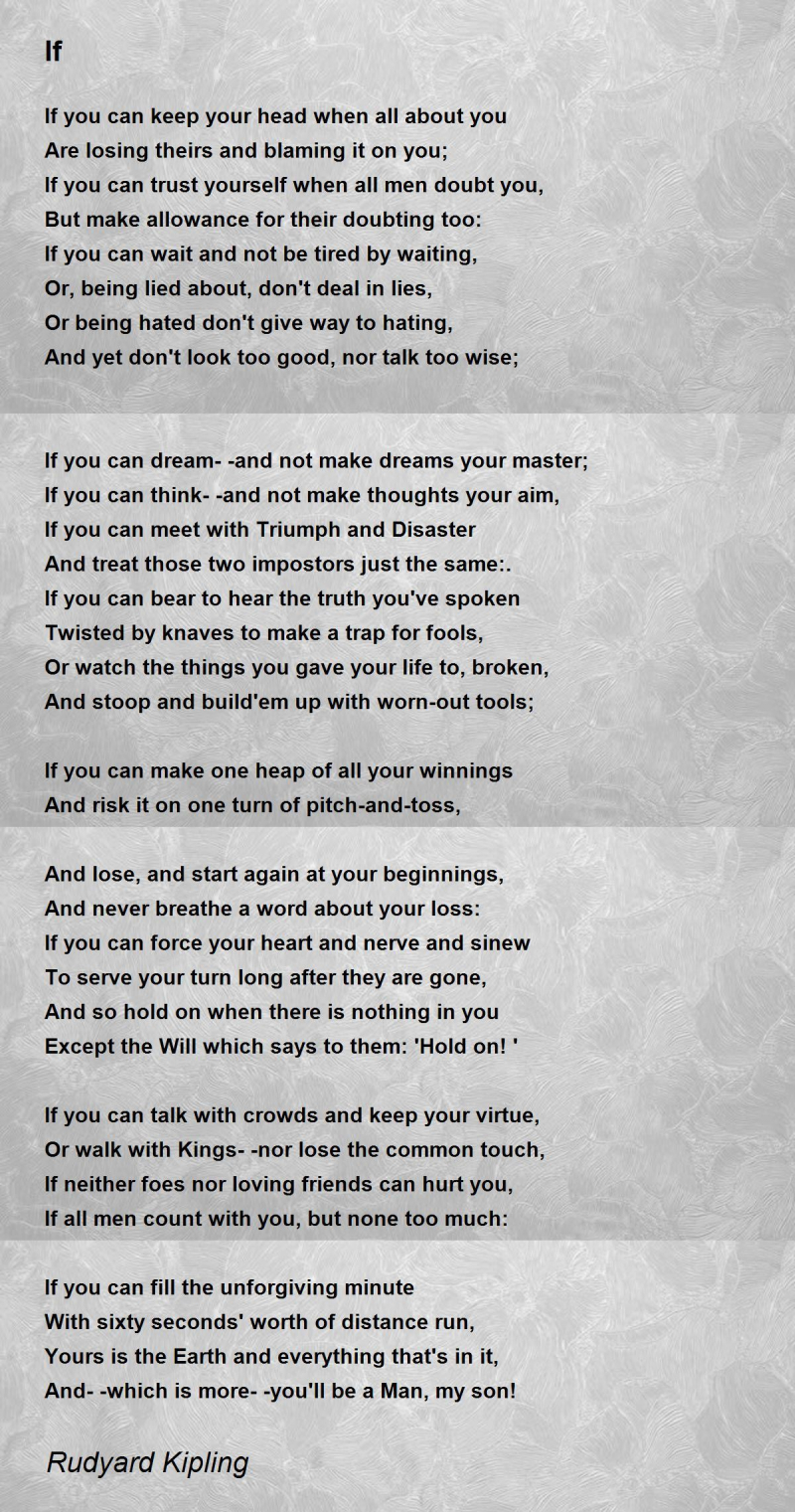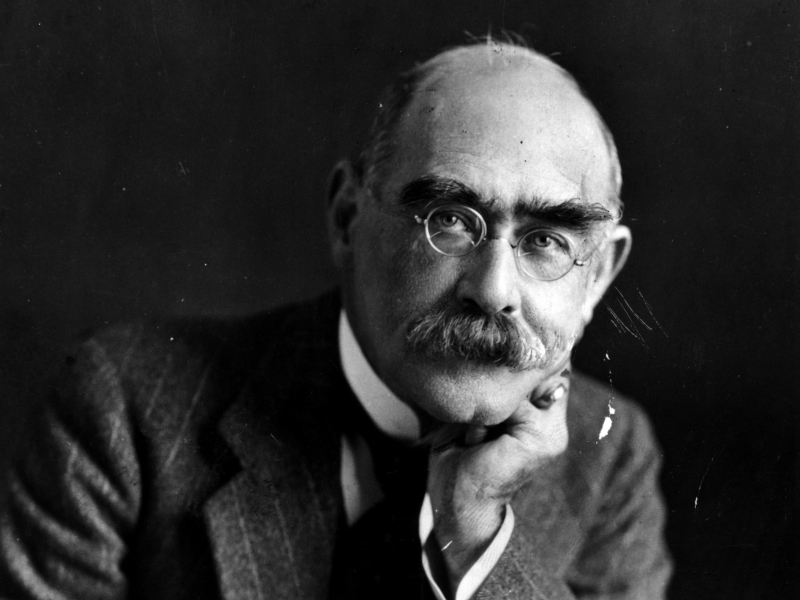If-
If—, by far Rudyard Kipling's most well-known poem, provides a number of scenarios and the perfect response one should have in each one. 'If—' is a motivational poem that offers suggestions for how people should spend their lives. The poem walks the reader through numerous strategies for overcoming challenges that are nearly certain to come their way at some point. 'If—' is regarded by many as one of the most motivational poems ever produced. It's safe to say that this poem has attracted a lot of attention in popular culture.
Near reality, any tennis enthusiast can undoubtedly confirm that a few of the words from "If—" are hung in the player's entrance at Wimbledon's Centre Court in England. "If you can meet with success and calamity and treat those two impostors just the same," the lines that are displayed read. While Kipling also authored poetry, novels, and articles, his 1894 collection of short stories The Jungle Book is the one for which he is most remembered. Kipling, a British author, was awarded the Nobel Prize in Literature in 1907.
The speaker offers the reader numerous scenarios, both good and bad, and a glimpse into how one should act throughout the poem. The poem's if-then scenario gives it an almost mathematical proof-like quality. Kipling leaves the “then” until the final two lines, revealing to the reader that if he or she is able to do all that was just mentioned, he or she will not only have the world at his or her fingertips, but he or she will also be a “Man.”
Poet: Rudyard Kipling
Published: 1910












